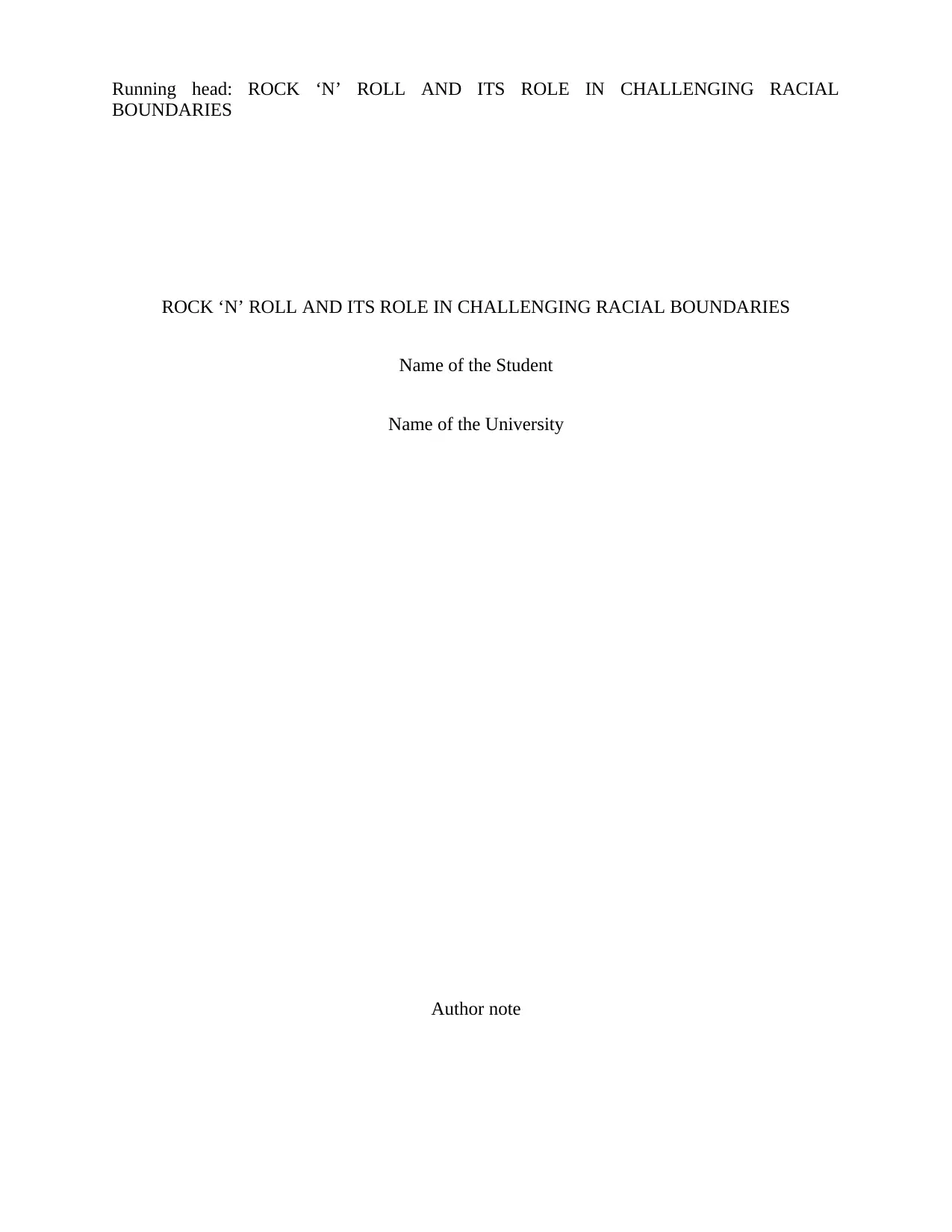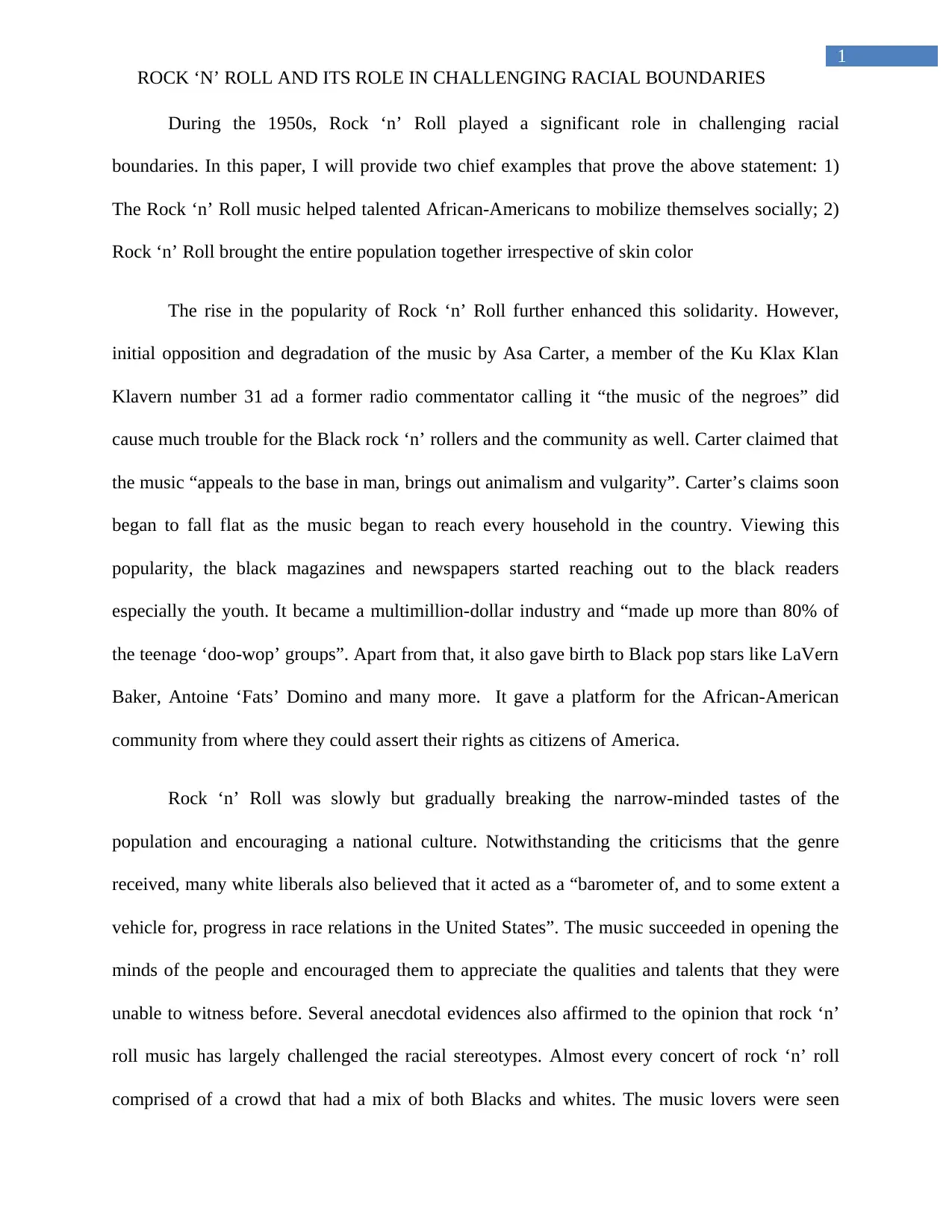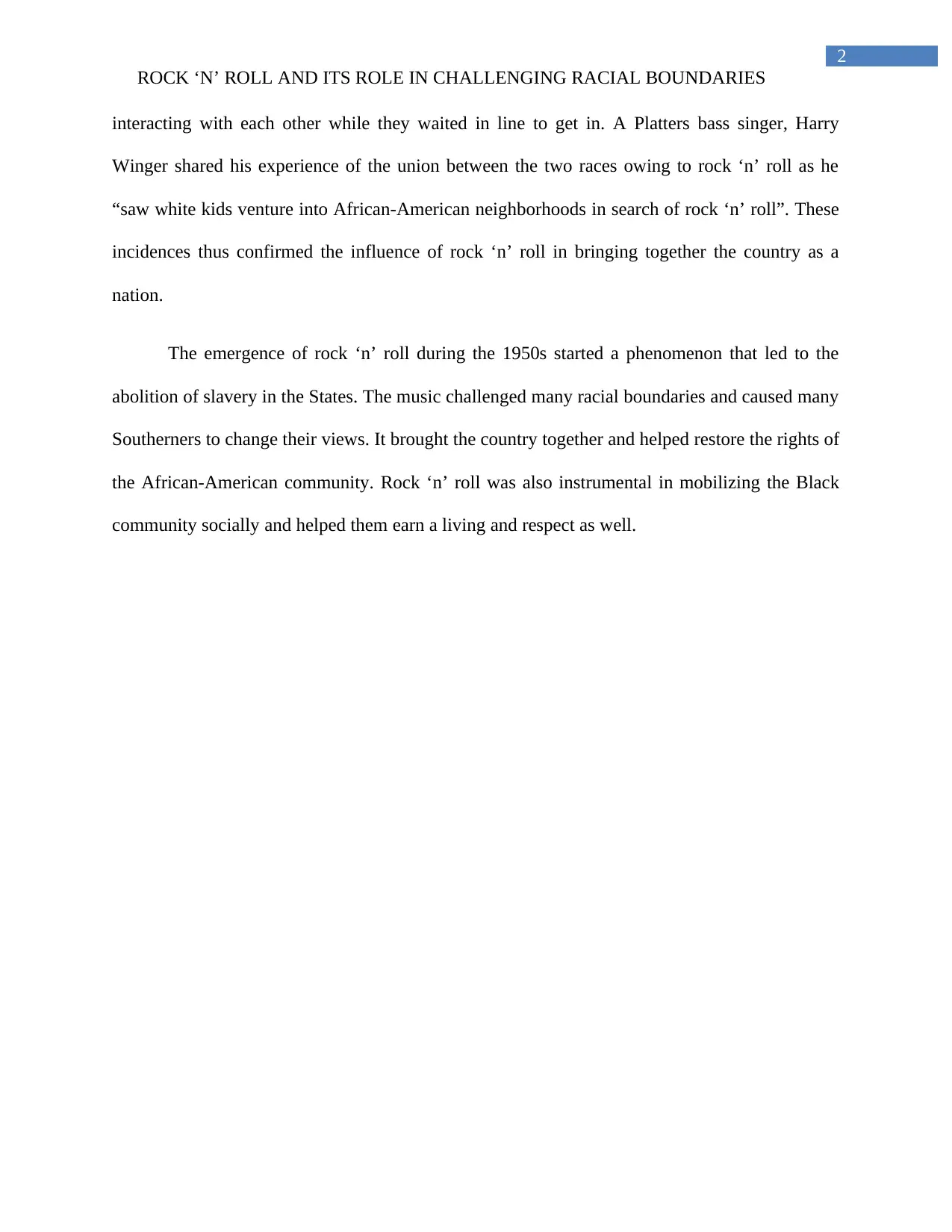How Rock 'n' Roll Challenged Racial Boundaries in the 1950s America
VerifiedAdded on 2023/06/11
|3
|626
|197
Essay
AI Summary
This essay argues that Rock 'n' Roll played a significant role in challenging racial boundaries during the 1950s by providing a platform for African-American artists and fostering integration among audiences. The essay highlights how the music industry, despite initial opposition, embraced Black artists like LaVern Baker and Fats Domino, enabling them to assert their rights and gain social mobility. It also emphasizes anecdotal evidence of integrated audiences at concerts, illustrating how Rock 'n' Roll encouraged interaction and broke down racial stereotypes. The essay concludes that Rock 'n' Roll contributed to a shift in societal views, ultimately aiding in the advancement of civil rights and promoting national unity.
1 out of 3







![[object Object]](/_next/static/media/star-bottom.7253800d.svg)